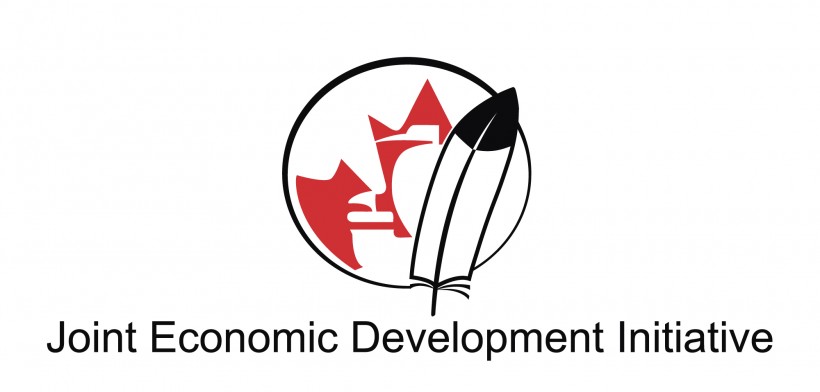The Joint Economic Development Initiative is starting the new cohort of its accelerator for indigenous entrepreneurs today, with a special focus on scaling and exporting.
JEDI, a non-profit that aims to foster Indigenous economic growth, said the 10-week program will accommodate seven companies, ranging in specialties from software development to 3D printing.
Unlike previous iterations of its accelerator, this program took in companies that are already well positioned for high growth with strong, validated business plans.
“This accelerator will take people from the point of market validation to full-blown go-to-market activates,” Mark Taylor, the Shipbuilding Strategy Manager at JEDI, said in an interview.
JEDI, which has partnered with organizations like BDO Canada, Lockheed Martin and BMO, will help companies create pitch decks, protect their IP, and learn hiring procedures. Taylor said the cohort will focus on exporting, global reach and investment.
“This particular cohort with have a huge emphasis on raising investment,” said Taylor. He added: “Throughout the whole process, they have to be knocking on doors, raising funds, whether it’s with angels, government funding, what have you.”
Taylor also discussed the obstacles Indigenous entrepreneurs face, pointing to how negative perceptions and property laws make it difficult for entrepreneurs to raise capital.
“To date there has not been a lot of interaction between traditional investment sources and indigenous entrepreneurs,” said Taylor.
“The starting point is giving them more opportunities, and doing a better job to get Indigenous entrepreneurs with their very innovative ideas in front of angel investors and seed stage venture capital opportunities, as well as educate the banks to adapt their rules to understand that reality of property ownership.”
Genesis Centre Launches Diversity Program
The organization shows entrepreneurs how to navigate those obstacles and works with its partners to shed light on the challenges. In November, JEDI received $2.2 million in funding, which helped the non-profit evolve its accelerator.
Taylor hopes that by focusing on scaling and exporting, the province’s next big exit will be an Indigenous-owned company.
“We’ve heard a lot of great stories of the non-Indigenous community in Atlantic Canada and we’re working hard to create more Indigenous success stories.”
The companies in the new cohort are:
- Lunney Development, a software development company founded by Katie Lunney.
- PLATO Testing, a network of Aboriginal software testers.
- Aboriginal Millennium Health Products, a biotech company founded by Roche Sappier that uses “raw forest resources” for products that treat different ailments.
- Smak'nis Maritime Security, a marine security and safety training company founded by Adam Kennedy.
- Woolastoq Marine, a marine-focused 3D printing company founded by Monty Paul.
- Atlantic Hydrogreens, a hydroponics company founded by Cody Brooks.
- And Down to Earth Productions, co-founded by Michael Stemm and Andrew Martin, which uses drone technology for video production.
Both Down to Earth and Atlantic Hydrogreens were runners up in JEDI’s pitch competition at its last accelerator program.










